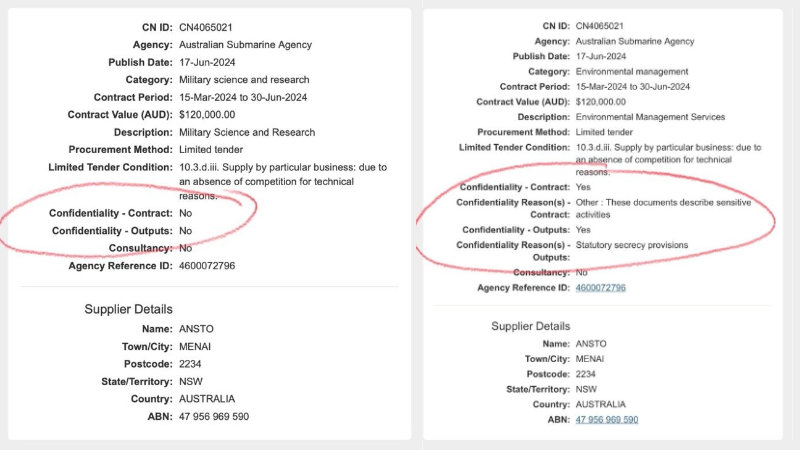When is a government document classified, and when is it not? Apparently, that is a question of it being subject to a Freedom of Information request. What’s the scam?
The scam is an Austender document at first marked as not confidential, and then appears to have been reclassified after I submitted an FOI request.
AusTender is the Australian Government’s procurement information system. It’s a hugely valuable transparency portal, providing a window on much government activity that would otherwise be unknown. The government must be accurate in its AusTender report. Inaccurate reports would amount to misleading the Senate.
So when I saw a contract that the Australian Submarine Agency had awarded to Australian Nuclear Science and Technology Organisation (ANSTO), and that the contract involved no confidentiality and the outputs of the contract were not confidential, I requested the contract from ANSTO under our freedom of information law, along with the report that was developed under the contract.
Needless to say, I was very surprised when the Government refused to provide the full contract or the resulting report to me, because it was national security confidential. I queried ANSTO, pointing out that a declaration had been made to the Senate that the documents were not confidential. Their response was to alter the declaration to the Senate, and they provided me with a heavily redacted document that has no classification marking. There’s no PROTECTED, no SECRET markings. Nothing!
The document was clearly not national security sensitive until I asked for it. For the second time in a week, a nuclear agency of Government has been caught out not playing by the rules.
Rex Patrick is a former Senator for South Australia and, earlier, a submariner in the armed forces. Best known as an anti-corruption and transparency crusader, Rex is also known as the "Transparency Warrior."

